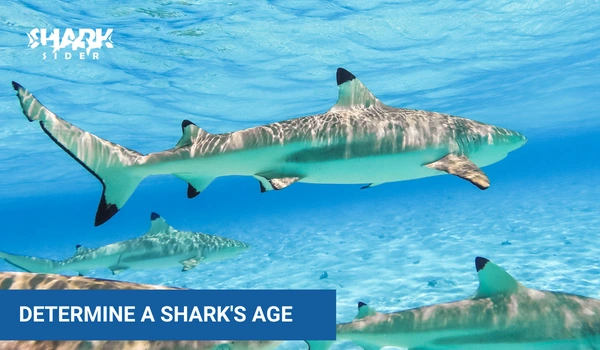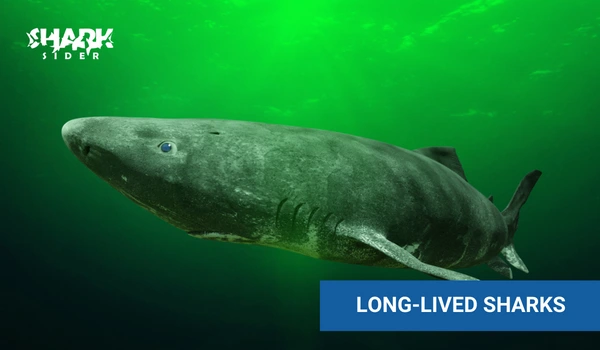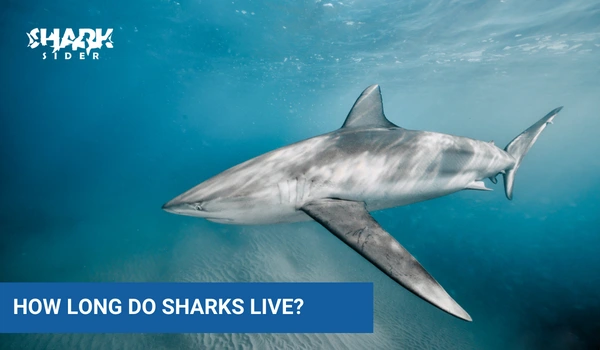As apex predators, sharks have been on top of the food chain in our oceans for millions of years, but with their lifespan being shrouded in mystery, many people don’t know exactly how long do sharks live for. In this blog post, we’ll explore all aspects of a shark’s life – from determining average lifespans to the investigative research that can help us better understand these mysterious creatures and how to protect them best. Sit tight and let’s dive into the fascinating world of sharks and find out – how long do sharks live?
How long do sharks live?
Sharks grow slowly compared to other fish and, depending on the species, can live anywhere from 20-30 years up to even 100+ years! While scientists are still unclear why some sharks may have longer lifespans than others, there is a consensus that larger sharks tend to have greater lifespans. For example, whale sharks – which are considered the largest of all shark species – can live for upwards of 70-100 years in their natural habitat. On the other end of the spectrum, smaller shark species like Spinner and Blacktip sharks have much shorter lifespans ranging from 8-12 years.
A sharks life cycle
In general, the life cycle of a shark follows a similar pattern regardless of its size or species.
Fertilization & Gestation: Immediately after mating, the male and female sharks will separate and the female’s eggs will fertilize internally. The female shark can take up to 2 years to develop these embryos before they are ready for release.
Birthing & Nursing: Depending on the species, a mother shark can give birth to anywhere from one to dozens of live young. Baby sharks are born fully formed but immediately begin searching for food as soon as they enter the water. Some species may also receive some form of parental care from their mothers, such as providing protection from predators or teaching them how to hunt.
Growth & Maturity: Once released into open waters, juvenile sharks must learn how to survive on their own until they reach maturity. The average lifespan of a shark depends on the species and can range between 10-80 years, with some sharks living even longer.
Determining shark age and lifespan

Assessing the age and lifespan of a shark is no easy task. While scientists have developed methods to estimate the age of sharks for research purposes, tracking aging in wild individuals is much more difficult due to their elusive nature and unpredictable movements. To gain insight into how long sharks live, biologists must rely largely on indirect information from other sources such as growth rings found in vertebrae or spines, size measurements over time, or even genetics testing.
Factors that affect shark lifespan:
The average lifespan of a shark varies significantly depending on the species, ranging from 10-80 years. While scientists are still unclear why some sharks may have longer lifespans than others, there are certain factors that can impact how old does sharks live – such as size, habitat, and diet.
Larger sharks tend to grow slower and live longer than smaller species, while those that inhabit deeper waters can also have longer lifespans due to the greater availability of food. Diet is another important factor in determining shark lifespan as some species may rely on specific types of prey for a large portion of their nutrition, which could limit their ability to live for a long period of time.
Long-lived sharks:

While all sharks have the potential to live long lives, some species are known for their immense longevity. The Whale shark is the longest-lived of all shark species with an average lifespan of 70-100 years, while Greenland and Great White sharks can also live up to 50-70 years in the wild. Even more surprisingly, a group of scientists recently discovered an ancient Greenland shark that is believed to be over 400 years old – making it the oldest known living vertebrate!
Short-lived sharks:
On the other end of the spectrum, there are several species of sharks that have much shorter lifespans. Spinner and Blacktip sharks typically live around 10-12 years, Mako and Tiger sharks can reach an age of 15-20 years, and Hammerhead sharks can reach up to 25-30 years in the wild.
Overall, sharks are incredibly resilient creatures that have adapted to survive in a wide range of habitats and conditions. While their average lifespan varies from species to species, most sharks can live long and fulfilling lives when given the proper environment and resources.
Conclusion
In conclusion, the answer to the question of how long can sharks live, depends on the species and specific environmental factors. Larger sharks tend to live longer than smaller species, while those that inhabit deeper waters can also have longer lifespans due to the greater availability of food. Some sharks are known for their immense longevity, such as the whale shark with a lifespan of 70-100 years.
However, there are also several species of sharks that have much shorter lifespans with an average life of 10-12 years. Scientists are still trying to gain insight into how old do sharks live, but for now, they rely largely on indirect information from other sources such as growth rings found in vertebrae or spines, size measurements over time, or even genetics testing.
Despite their short lifespans compared to other animals, sharks are still able to live long and fulfilling lives when given the proper environment and resources. With a better understanding of their lifespans, scientists can gain valuable insight into how to best protect these elusive creatures in the future.

